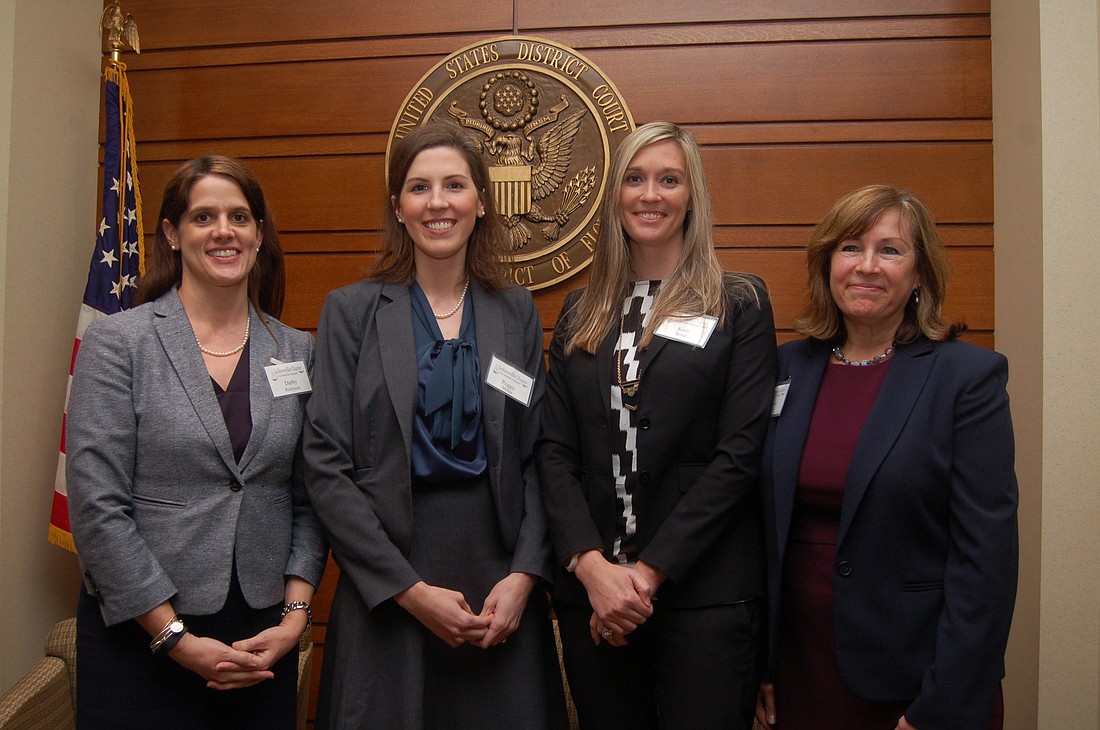
The U.S. District Court Middle District of Florida is one of the most active federal courts in the nation, ranking 10th out of 94 districts in the number of civil filings annually.
Its 26 district and 20 magistrate judges average about 350 cases on each of their dockets.
They accomplish their work with the help of their law clerks who manage thousands of court documents, maintain filing reports, verify compliance with court rules, research case law and write briefs.
During trials, clerks research the law and prepare jury instructions and verdict forms.
Four clerks for federal judges joined the Jacksonville Chapter of the Federal Bar Association on Thursday for lunch and a discussion of what clerks do and best practices for attorneys when filing and appearing in federal court.
“We help the judge be a judge,” said Peggy Miller, U.S. District Judge Marcia Morales Howard’s law clerk.
The responsibilities are similar in the federal appellate court, said Darby Robinson, law clerk for 11th Circuit U.S. Court of Appeals Judge Susan Black.
Kara Wood, law clerk for U.S. Magistrate Judge James Klindt, said about 11,000 motions were filed in the Jacksonville division of the district court in 2017.
Attorneys should ensure that their motions are filed properly since even a small percentage of error can represent many documents that cannot move through the system.
She also said attorneys should be aware of a particular local rule that requires them to “confer in good faith” with the attorney on the other side of a case before a motion is filed. Some judges favor personal communication and therefore do not consider email communication sufficient to meet the “good faith” requirement.
“Pick up the phone or go to lunch and talk about it,” Wood said.
Also on the subject of communication, Robinson said when attorneys present written arguments, avoid unsuitable writing styles.
“Snarkiness does not play well in legal writing,” she said.
Communication between attorneys and law clerks is critical, said Susanne Weisman, U.S. District Judge Timothy Corrigan’s law clerk.
“If you need an extension, file the motion early and tell us how much time you need. Otherwise, we have to guess,” she said.
Weisman advises attorneys to avoid calling a judge’s chambers to ask when she or he plans to rule on a motion.
“It’s ‘under advisement’ is our standard answer,” she said.
That doesn’t mean there’s no urgency, however. Weisman said that twice each year, in March and in September, federal judges are required to disclose how many motions before them have been pending for more than six months and how many cases have been pending for more than three years.
“We like that report to be clean,” she said.
Speaking for the panel, and based on her 20 years of work as Corrigan’s law clerk, Weisman said to the attorneys in the audience, “it’s a privilege to work on the intellectually challenging problems you bring us every day.”